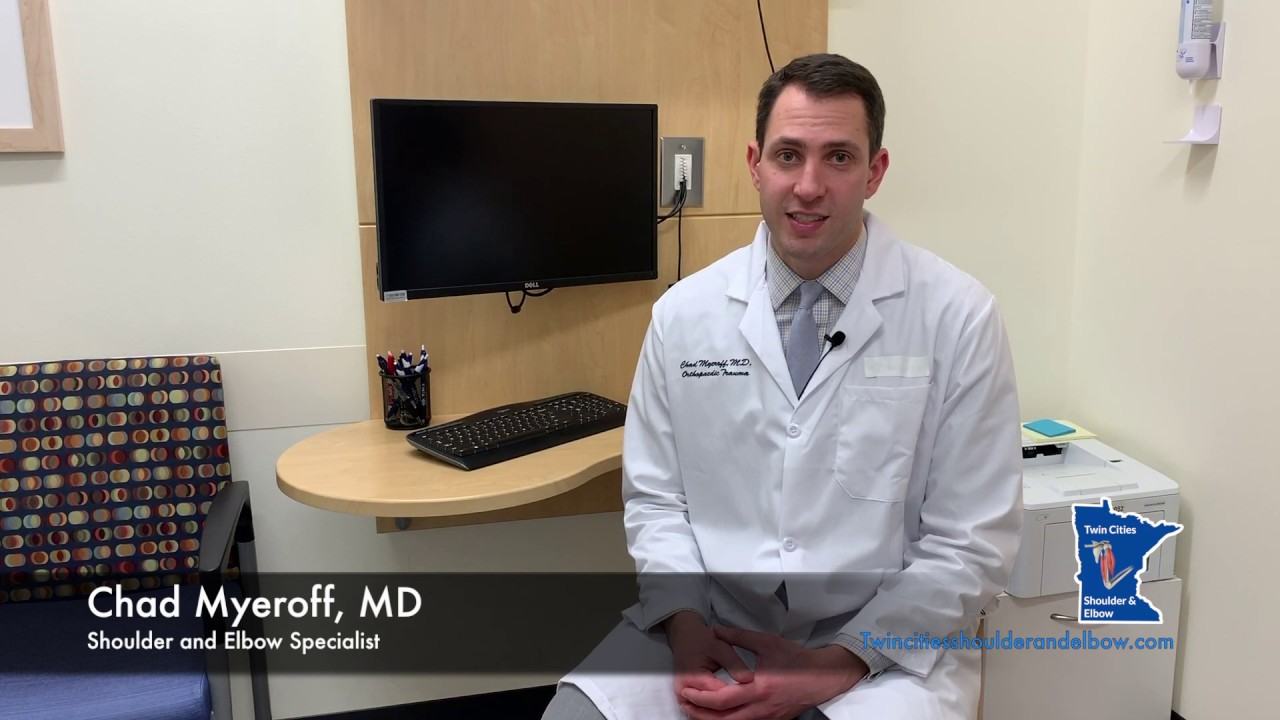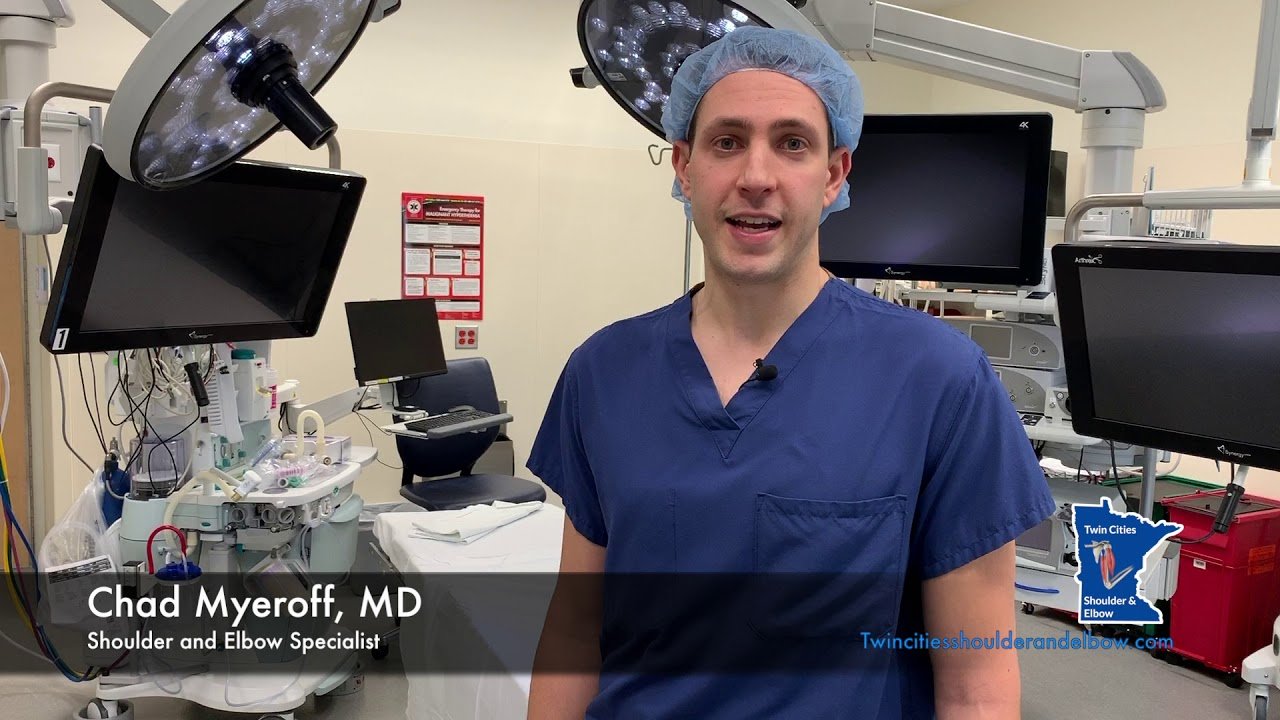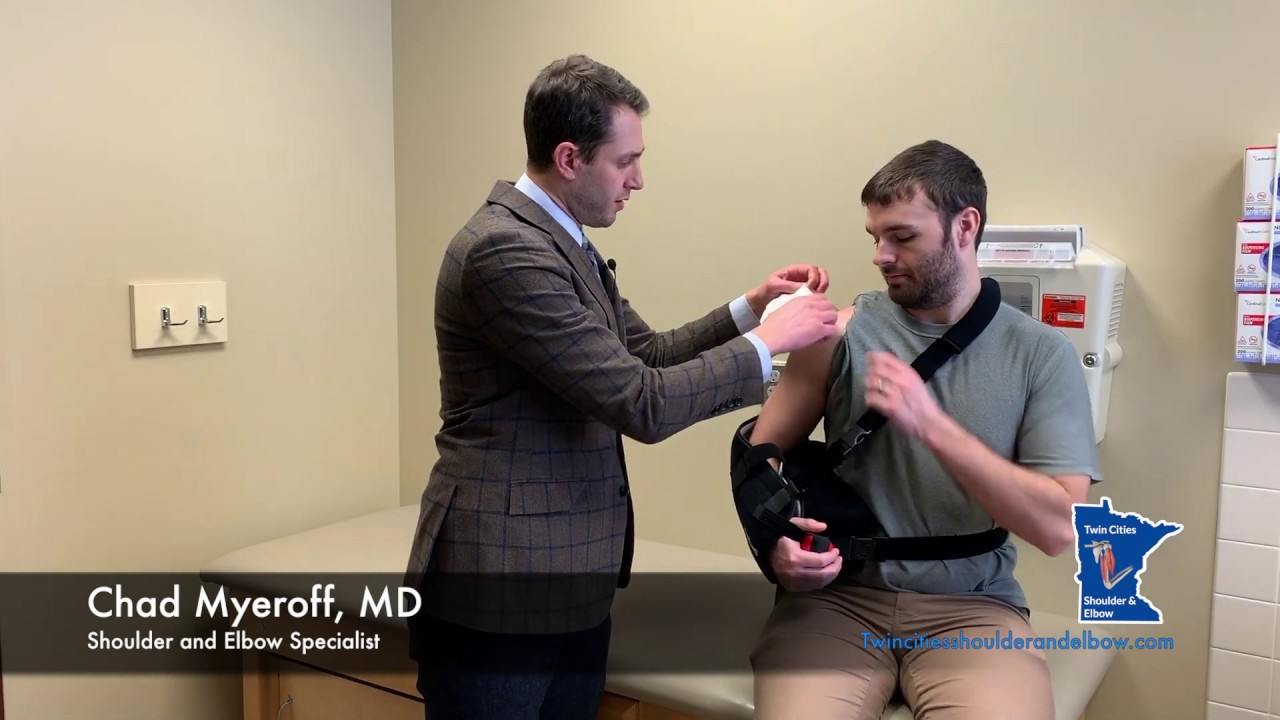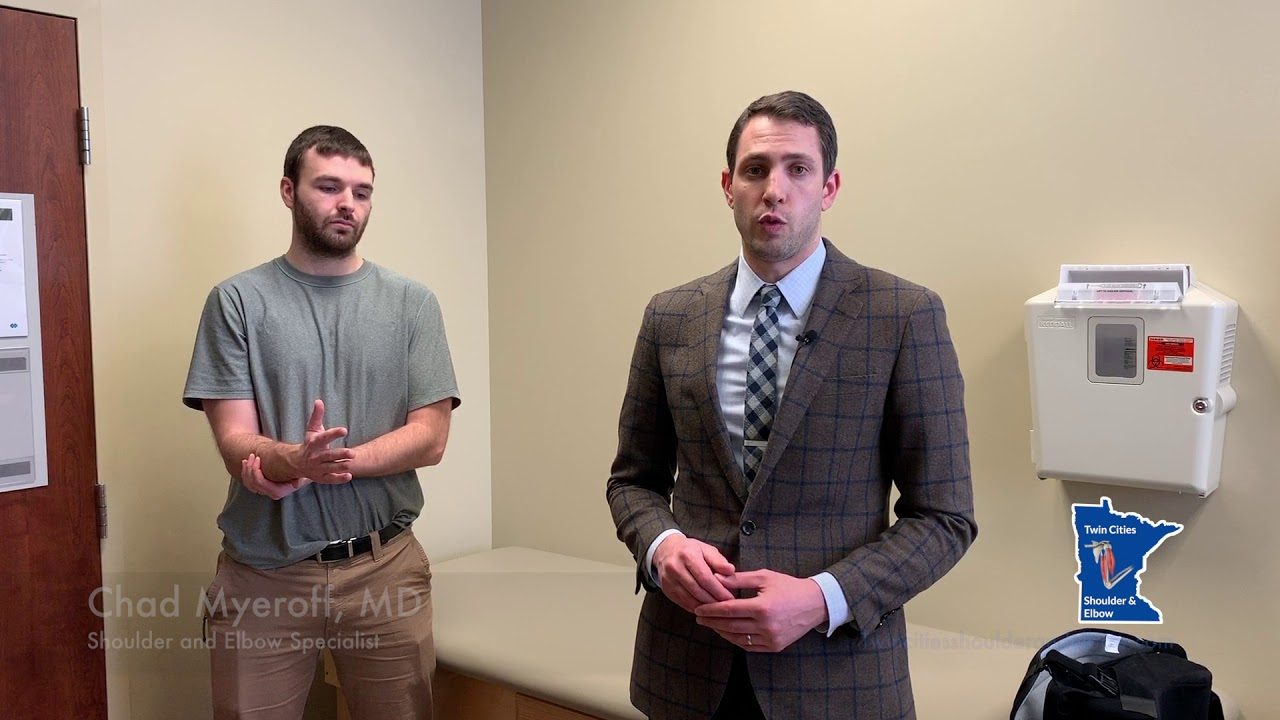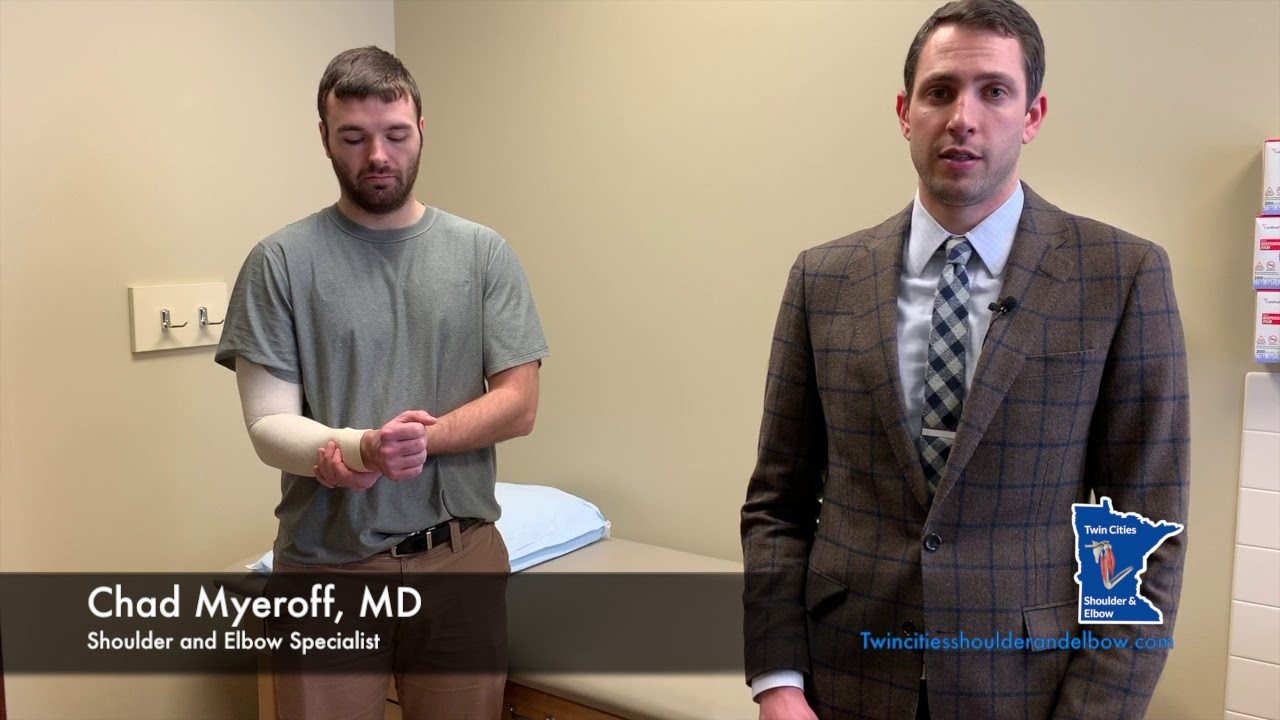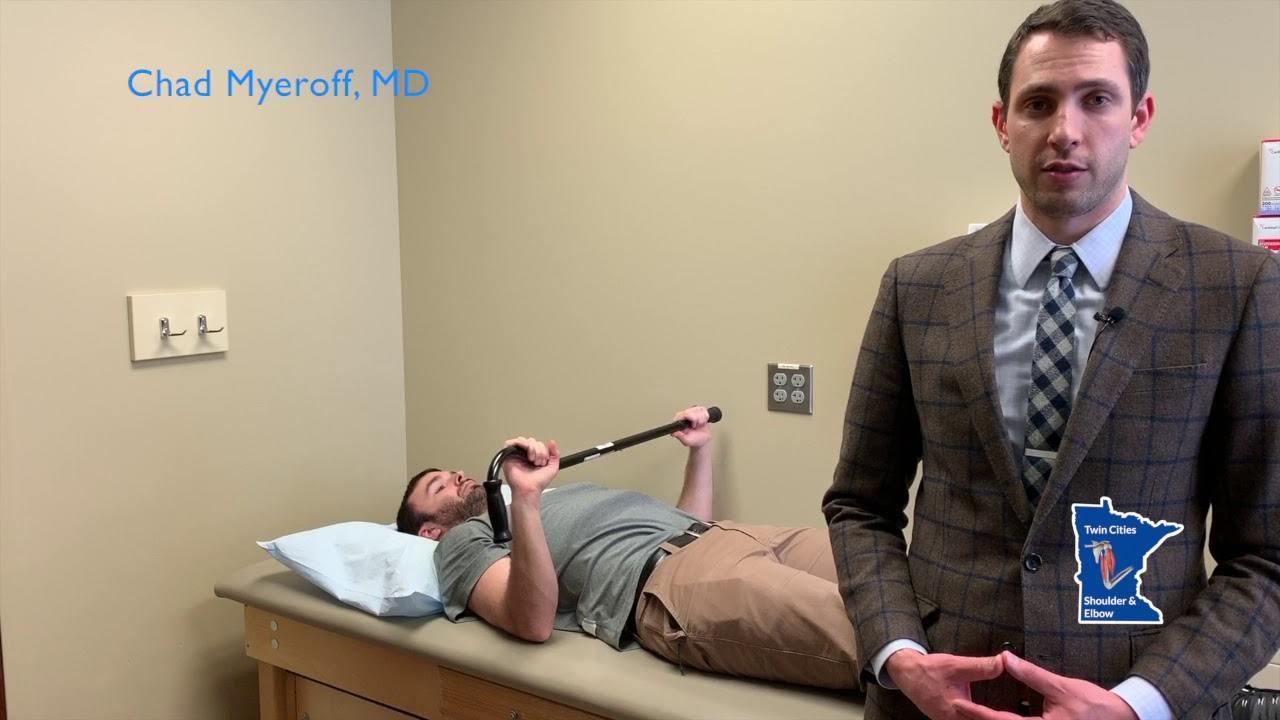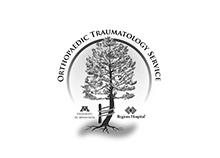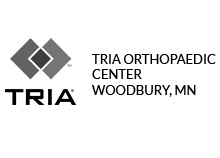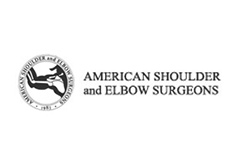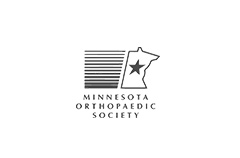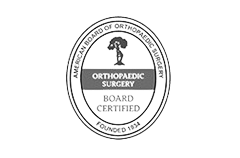Biceps Tendon Tears
- Diagnosis
- Non-operative Options
- Operative Options
- Before Your Surgery
- After Your Surgery
- Your Rehab
Mini-open Subpectoralis Biceps Tenodesis with Suture Button
What is the Biceps Tendon?
Your biceps muscle is attached to the shoulder joint through tendons forming two heads, a long head and short head.
Causes of Biceps Tendon Rupture
Overuse and injury of the biceps muscle during weightlifting or any repetitive physical activity causes fraying and eventual long head biceps tendon rupture. It can also occur due to falling on an outstretched arm.
Risks Factors for Biceps Tendon Rupture
The risk factors for long head biceps tendon rupture include:
- Old age
- Repetitive overhead activities
- Smoking
- Corticosteroid medication use
Types of Biceps Tendon Rupture
Tears of the biceps tendon may be either:
- Partial tears
- Complete tears
Symptoms of Biceps Tendon Tear
The symptoms that may occur with biceps tendon rupture include:
- A popping sound
- A snapping sensation
- Pain with overhead activity
- Weakness in the shoulder
- Bruising in the upper arm
Diagnosis of Biceps Tendon Tear
Your doctor diagnoses a biceps tendon rupture after observing your symptoms and taking a medical history. A physical exam is performed where your arm is moved in different directions in order to see which movements elicit pain or weakness. Imaging studies such as X-rays may be ordered to assess for bony deformities such as spurs, which may have caused the tear. An MRI scan can help determine if the tear is partial or complete.
- Physical Therapy Intro
- Shoulder and Elbow Steroid Injection
Nonsurgical treatment includes:
Rest: A sling is used to rest the shoulder and you are advised to avoid overhead activities and heavy lifting until healed.
Ice: Applying ice packs for 20 minutes at a time, 3 to 4 times a day, helps reduce swelling.
Medications: Non-steroidal anti-inflammatory medicines help reduce pain and swelling.
Physical Therapy: Strengthening and flexibility exercises help restore strength and mobility to the shoulder joint.
Want to know more?
Surgery may be necessary if your symptoms are not relieved by conservative measures and if you are an athlete and require full restoration of strength. Your surgeon makes an incision near your shoulder where the tendon is torn. The torn end of the tendon is cleaned, and the bone is prepared by creating drill holes. Sutures are woven through the holes, and the tendon to secure it back to the bone and hold it in place. The incision is then closed and a dressing applied.
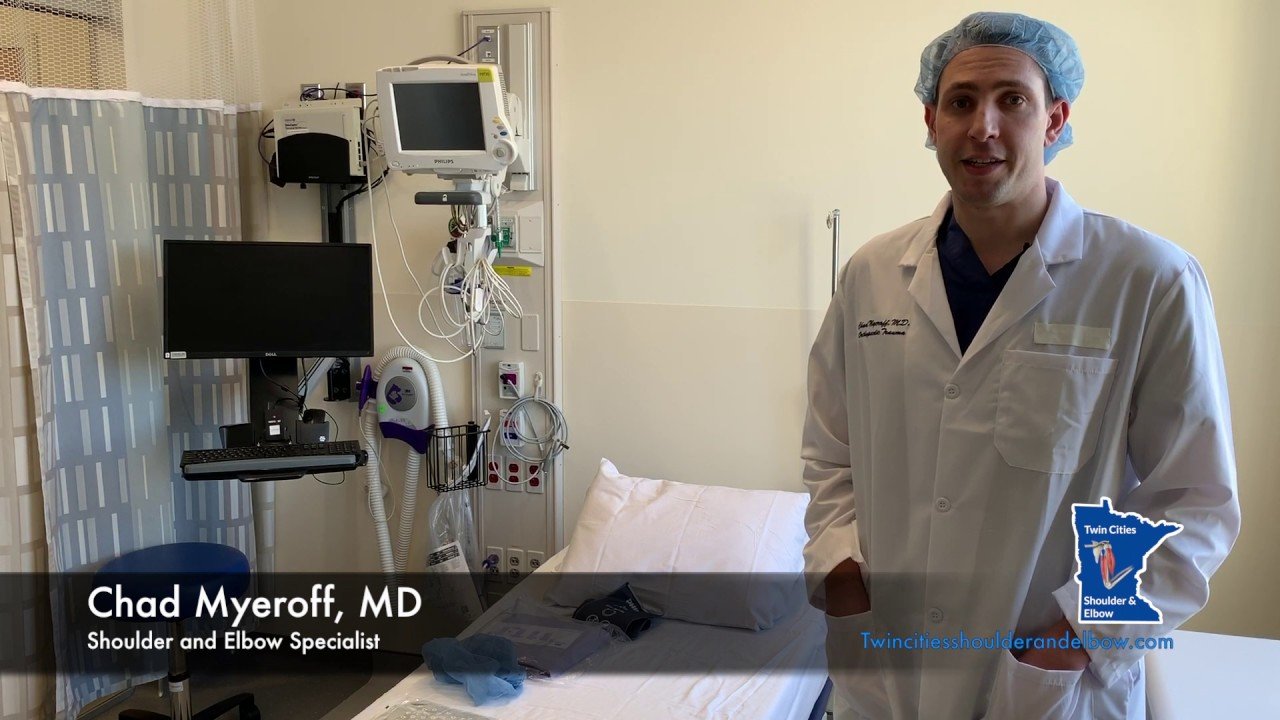
Once you and your doctor decide that surgery will help you, you will need to learn what to expect from the surgery and how to actively participate in the treatment plan for the best results afterward.
Preparing mentally and physically for surgery is an important step toward a successful result. Understanding the process, and your role in it, will help you recover more quickly and have fewer problems.
Before surgery, your doctor will perform a complete physical examination to make sure you don’t have any conditions that could interfere with the surgery or the outcomes.
- Routine tests, such as blood tests and X-rays may be performed.
- Discuss any medications you are taking with your doctor as you may have to stop or alter your intake before surgery. If you are taking aspirin or anti-inflammatory medications or any drugs that increase the risk of bleeding, you will need to stop taking them one week before surgery to minimize bleeding.
- Discuss with your doctor about preparing for potential blood replacement, medical interventions and other treatments prior to surgery.
- Report any infections to your surgeon. Surgery cannot be performed until all infections have cleared up.
- If you smoke, you should stop or cut down as smoking interferes with wound healing and can affect your recovery.
- Have someone available to take you home, as driving is not recommended for at least 24 hours or as advised.
- You may need help with everyday tasks such as cooking, shopping and laundry.
- Put items that you use often within easy reach, so you won’t have to stretch and bend as often.
- After Surgery Video
- Shoulder Surgery Recovery Video
Want to know more?
- Physical Therapy Intro Video
- Finger ROM Video
- Standard Elbow ROM Video
- Shoulder ROM Video



